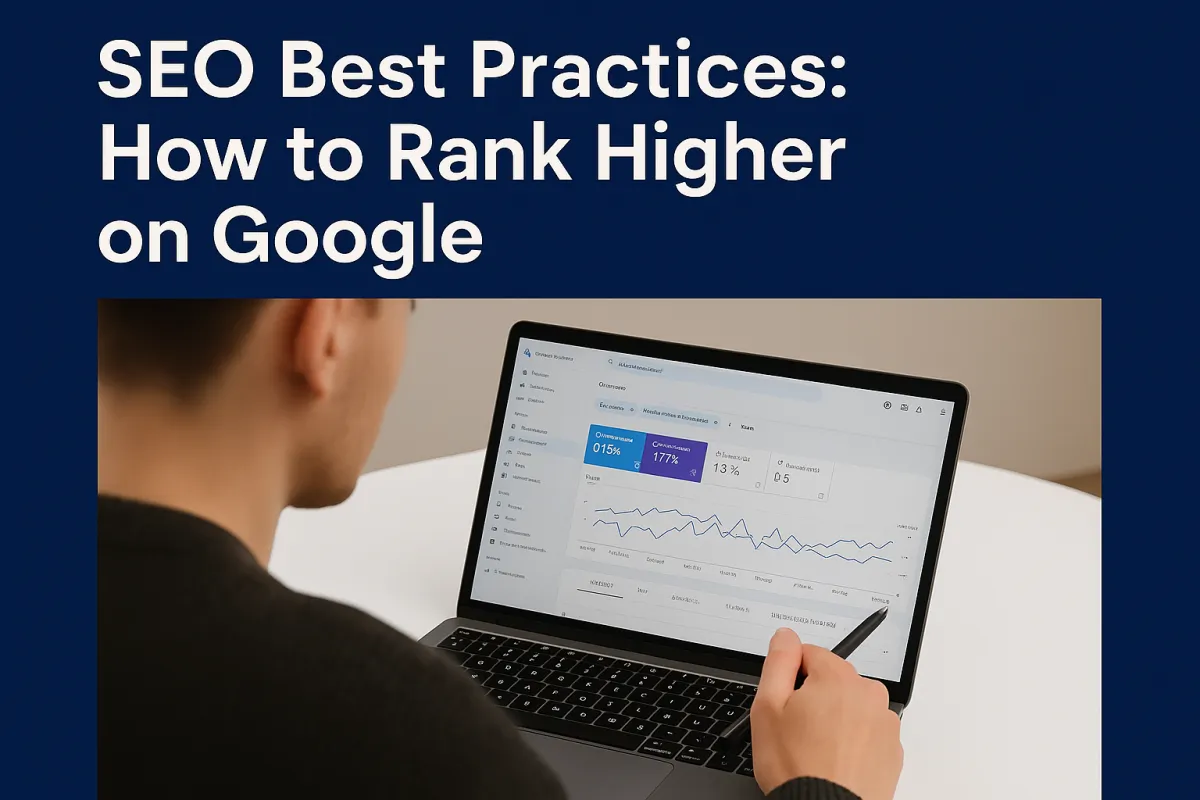
SEO Best Practices: How to Rank Higher on Google
Introduction
Keyword Research & Optimization
On-Page SEO Techniques
Technical SEO Enhancements
Content Strategy & Link Building
User Experience (UX) & Engagement
AI & Voice Search Optimization
Conclusion
Introduction
SEO is constantly evolving, and 2025 is no different. With Google's AI-driven algorithms, Core Web Vitals, and user-focused ranking factors, staying ahead requires a strategic approach. In this guide, we’ll explore the best SEO practices to help your website rank higher and attract more traffic.
Keyword Research & Optimization
Use AI-powered tools like Google Keyword Planner, Ahrefs, and Semrush.
Target long-tail and conversational keywords for voice search.
Optimize content for search intent (informational, navigational, transactional, or commercial).
On-Page SEO Techniques
Craft compelling title tags (under 60 characters) and meta descriptions (under 160 characters).
Use H1-H6 headers for better content structure.
Add internal links to relevant content for better engagement.
Optimize for featured snippets by structuring content with bullet points and lists.
Technical SEO Enhancements
Improve website loading speed with tools like Google PageSpeed Insights.
Implement mobile-first indexing (Google prioritizes mobile-friendly sites).
Use structured data (Schema Markup) to enhance search engine visibility.
Ensure secure HTTPS protocol for better rankings and trust.
Content Strategy & Link Building
Publish high-quality, engaging, and helpful content that satisfies user queries.
Utilize EEAT (Experience, Expertise, Authoritativeness, and Trustworthiness) for better rankings.
Build high-quality backlinks from reputable websites and guest blogging.
Leverage social media signals to boost brand authority.
User Experience (UX) & Engagement
Enhance Core Web Vitals (Largest Contentful Paint, First Input Delay, Cumulative Layout Shift).
Improve site navigation with clear menus and user-friendly design.
Reduce bounce rates by making content more engaging with visuals, infographics, and interactive elements.
AI & Voice Search Optimization
Optimize for Google Bard and ChatGPT-powered search by writing conversational content.
Use natural language processing (NLP) keywords for AI-driven search results.
Target FAQ-style content for voice search queries.
Conclusion
SEO is all about user experience, AI-driven algorithms, and high-quality content. By following these best practices, you can boost your search rankings, increase traffic, and enhance your digital presence. Stay updated with the latest SEO trends and keep optimizing!